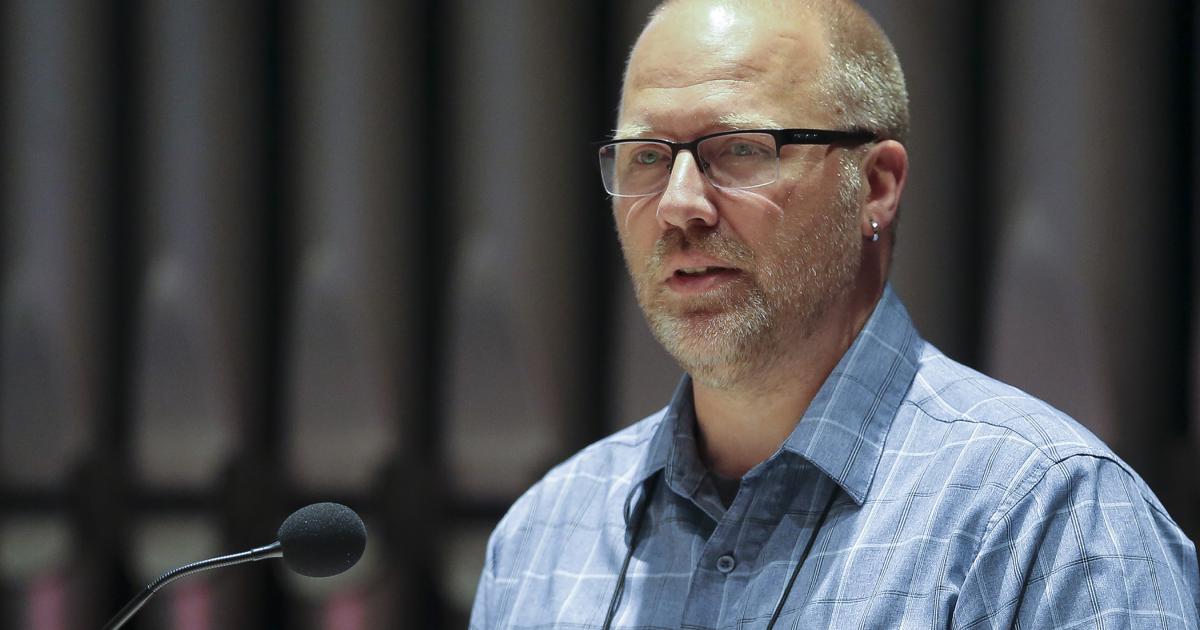
Chris Schoon, an ordained minister in the Christian Reformed Church who served as co-director of Thrive (previously congregational ministries) is resigning his position as of Sept 20. Schoon was ordained in 2003 and pastored Plymouth Heights CRC in Grand Rapids, Mich., and First CRC in Hamilton, Ont., before becoming team leader for faith formation ministries with the denomination in 2019. He was named co-director of congregational ministries in October 2022.
Schoon told The Banner he will miss serving and learning alongside “the dedicated, thoughtful team of skilled, competent, and sacrificial staff on Thrive’s team who daily seek to equip and encourage congregations and ministry leaders across the CRC” but “after much time in prayer and discernment, and with both gratitude for what has been a really good season of ministry and lament that this season is ending, I feel confident that God is leading me to seek a different ministry context at this time.”
“While I remain committed to the Reformed faith and the theology that has shaped and molded me throughout my life, the decisions of synod over the past few years have set a direction for the denomination that I do not agree with,” Schoon said. “I feel that I can no longer carry out my responsibilities as co-director of a CRCNA denominational ministry with integrity to my own convictions.”
Synod is the annual general assembly of the CRCNA. Schoon would not clarify which decisions of synod he was referring to.
One prominent change was Synod 2022’s decision to clarify the requirement of church leaders to stand by the church’s teaching that homosexual sex, along with several other sexual behaviors, is unchaste and a violation of the seventh commandment. Synod 2024 set a course of discipline for churches acting publicly against that teaching and removed any ambiguity that a church leader could have a settled conviction that is contrary to a confessional teaching of the church.
Al Postma, executive director-Canada, and Dan DeKam, director of U.S. ministry operations, informed CRCNA staff of Schoon’s resignation Sept. 3. “Thrive will be moving forward with a single directorship rather than a co-directorship,” the announcement said. Lesli van Milligen, previously Thrive’s Canadian director, has shifted from her co-director role to become the agency’s director. A public announcement was posted Sept. 4.
Schoon said, “Rev. Lesli van Milligen is an amazing leader and it’s been a true gift to partner with her as co-directors in developing and leading Thrive. I look forward to hearing how the Spirit works through Lesli and the rest of Thrive to support churches throughout the CRC in the coming months and years.”
Van Milligen said the co-director model “helped us steward some fairly heavy culture shifts when we brought nine smaller ministries into one. Having two of us be attentive to a variety of adaptive and technical challenges was very helpful.” She believes “the model served its purpose and has set our team up for success in this new iteration with a single director.”
Of the work Schoon contributed to in Faith Formation Ministries and as co-director of Thrive, he said he’s particularly thankful to have been part of the Faith Practices Project and “several other discipleship and congregational ministry efforts, including our mentoring efforts with Generation Spark, Thriving Together, which supports pastoral wellbeing, and our focus on home-based faith formation through the Christian parenting and caregiving initiative.”
Denominational leaders have noted recently a higher need for resources from Thrive. Van Milligen said the collaborative nature of the new agency is suited to supporting churches well. “Questions or issues that would have come to only one ministry before, and may have been overwhelming for a small ministry to take on, can now be addressed by all of Thrive using the different gifts we all represent to help support those congregations,” van Milligen said. “And these questions go beyond human sexuality matters and whether or not a congregation will disaffiliate. We are also spearheading questions around discipleship, intergenerational mentoring, how to best use the gifts of people with disabilities, what worship songs would be best for different situations, and so much more. We are able to be more collaborative and project-based than we were as separate ministries, which helps us tackle the large and varying needs of congregations during this challenging time.”
